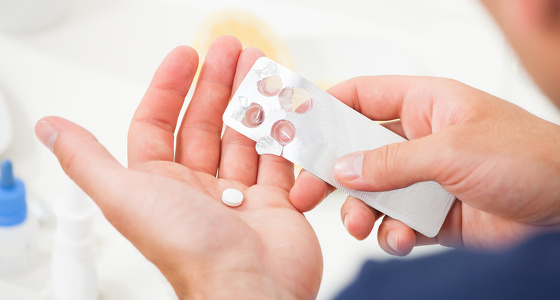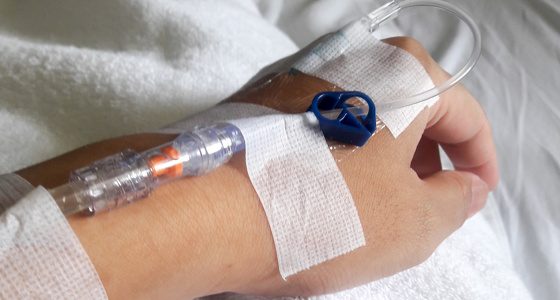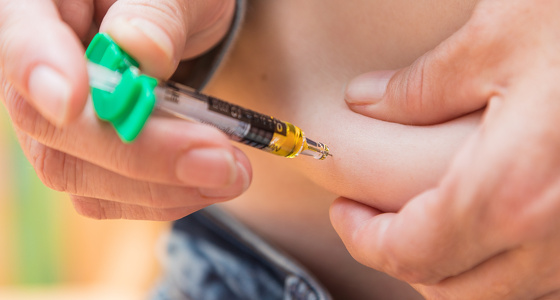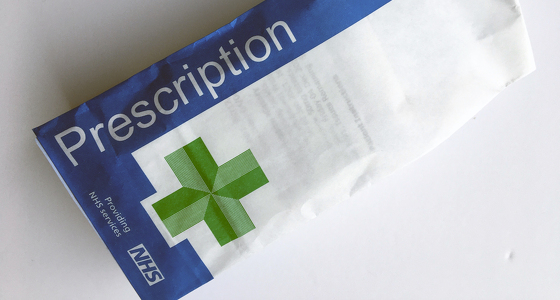Some medicines you may take for your IBD will need to be delivered to your home rather than collected from a pharmacy. Find out more in this article...
Some medicines used to treat inflammatory bowel disease (IBD) need to be handled and stored in a specific way and can’t be dispensed like other medicines from your local pharmacy. In these cases your IBD team will organise for your medicine to be dispensed and delivered by a home delivery company.
As well as ensuring your medicine is handled correctly, home delivery means you do not need to travel to hospital to collect these medicines from the pharmacy, which can be time consuming and costly, especially if you do not need to see your IBD team at the same time.
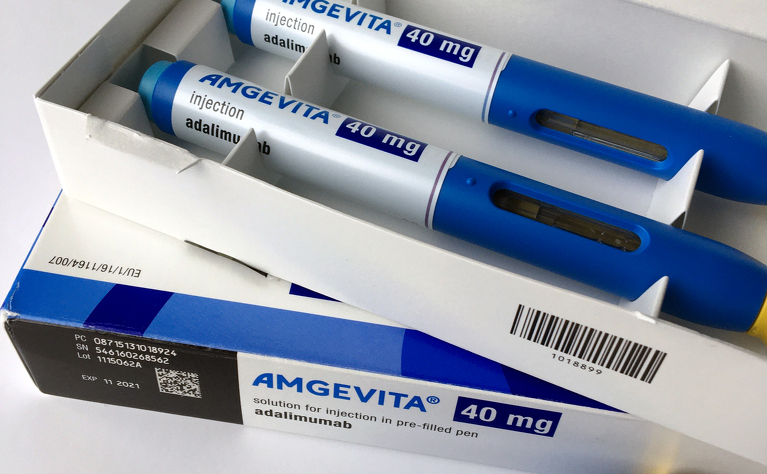
Some biologic medicines for Crohn’s disease or ulcerative colitis are given by injection. At first you will usually be given your injections in hospital by your doctor or nurse. Once you are used to having your biologic medicine this way, you will be taught how to inject yourself, so you can do it at home. This is when your IBD team will arrange for your medicines to be delivered to your home. These medicines must be kept at a constant temperature (between two and eight degrees celsius) until they are used, so will be delivered in a refrigerated van, and handed to you so they can be put straight into your fridge.
Biologics that come in prefilled syringes or as prefilled injection pens include:
If you have a stoma you may also receive delivery of your supplies from a home delivery company.
Your IBD team will send a referral form and your prescription to a home delivery company, who will set up an account for you and contact you to organise your first delivery.
You can usually ask for your medicines to be delivered to your home address, work address, or to another address to be received by a neighbour or another family member (aged 18 or over) with your consent.
You can arrange your delivery to be on a day that is convenient for you. You may be able to contact the home delivery company on the morning of your delivery for an estimated time of arrival, but this varies from company to company.
Your deliveries will be made by trained drivers who should carry identification. If the driver is going to be delayed, you should be contacted by the home delivery company with a revised estimate of your delivery time.
The home delivery company cannot leave medicines in a safe place, or with any person except you or the person who you have given consent for. If you cannot be available to accept your medicines for any reason, contact your home delivery company as soon as possible and they will reschedule your delivery to another day.
Your home delivery company will also supply you with a sharps bin to safely dispose of used syringes and injection pens. When your sharps bin is full, seal it shut and the delivery driver can take it away at your next delivery.
Check your delivery when it arrives to make sure it is correct. If there is a problem, do not accept the delivery and contact your home delivery company straight away.
You can contact your home delivery company by telephone and by email and some companies have an online service where you can complete the whole process.
Your home delivery company will usually contact you in plenty of time to arrange your next delivery of medicine. However it is worth keeping an eye on your supply, and contacting them if you don’t hear from them. This will help ensure you don’t miss a dose. Some home delivery companies offer a text reminder service which you can sign up to. You will then receive a text on your mobile phone the day before, so you don’t miss your delivery.
When you arrange your next delivery, your home delivery company may also ask for a stock check of drugs you currently hold and ask if any additional items are required, such as a new sharps bin.
Sometimes, instead of being taught in hospital, home care companies will send nurses to teach you how to self-inject your medicines at home. Your IBD team will tell you which training you will receive. Some people find self-injecting difficult, so if you prefer it may be possible for someone else, such as a family member or a friend, to be trained to give the injections.
Your home delivery team can give you advice about your medicine and how to take it (but not about your treatment). When it’s time to have your injection, take a good look at your syringe or injection pen when you remove it from its packaging. Check it is the biologic that you are expecting, and is not past its expiry date. If there is a problem, or you notice any damage to the device, or the medicine looks discoloured, cloudy or contains any particles or flakes, do not use it and contact your home delivery company for advice. (Remember it is normal for there to be a small air bubble in the syringe/injection pen).
If you are having problems arranging or receiving a delivery, or with some other aspect of home delivery, contact your home delivery company’s customer care team, who will hopefully solve your problem. If you are still having problems, speak to your IBD team for advice.
You’ll need to keep your biologic injections in the fridge. Keep them in their original packaging to protect them from light.
Make sure you put newer deliveries of your injections to the back, using older injections first. This will stop them passing their expiry date and being wasted.
It is important to make sure your medicine is kept out of the reach and sight of children and vulnerable adults at all times.
Some biologic medicines can be stored at temperatures of up to 25 degrees celsius for between 14 and 30 days, as long as they are protected from light. This is useful if you are going to be travelling or away from home when your injection is due. You should not refrigerate biologic medicines again once they have been kept out of the fridge. You can check specific guidelines for storage of your biologic medicine by reading the patient information leaflet that comes with it, or by contacting your home delivery company.
